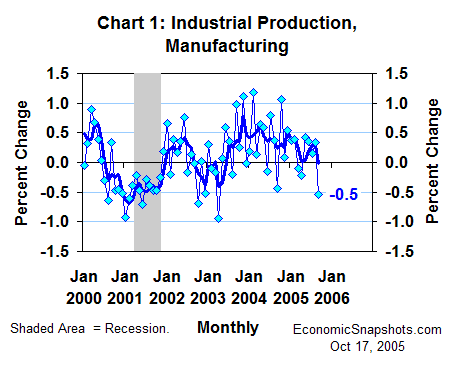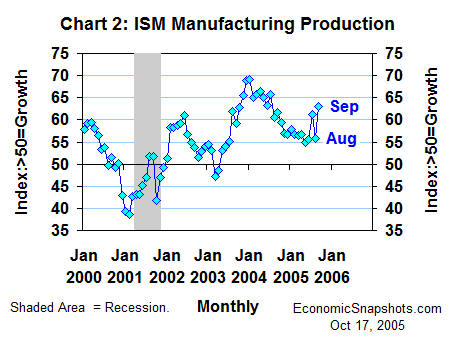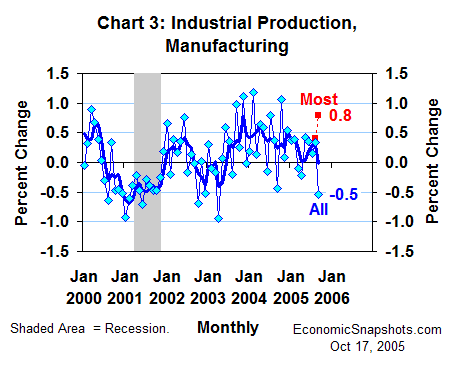
| Back to Index |
October 17, 2005 – According to the Federal Reserve’s industrial production report (released Friday), U.S. industrial production in the manufacturing sector fell by 0.5% in September after a 0.3% August rise (Chart 1). The Fed said September production was depressed by Hurricanes Katrina and Rita, and a strike in the aerospace industry.

At first glance, these data seem to be at odds with the ISM diffusion index of manufacturing production. The ISM index signaled stronger manufacturing production growth in September (Chart 2).

This conflict seems to stem primarily from conceptual differences between these two sets of statistics.
The ISM manufacturing production index was designed to measure the breadth of manufacturing production growth. It rises and falls each month with the net number of firms reporting increases in their output.
The industrial production report's manufacturing index was designed to measure the quantity of output produced. It rises and falls each month with the manufacturing sector’s total production.
Thus, taken together, these two surveys seem to suggest that more manufacturers increased their production in September, but a few had unusually large production declines.
A closer look at the industrial production data tends to support this conclusion.
The Fed said manufacturing categories hardest hit by hurricane damage were petroleum refining and industrial chemical production. Altogether, production of petroleum & coal, chemicals and the strike-depressed aerospace product & parts account for roughly one-fifth of total manufacturing output. These categories’ total production plunged by 6.2% in September (-0.2% in August).
However, for the remaining four-fifths of the manufacturing sector, September production rose by a sturdy 0.8% – twice as much growth as August’s 0.4% gain (Chart 3).

Suzanne Rizzo